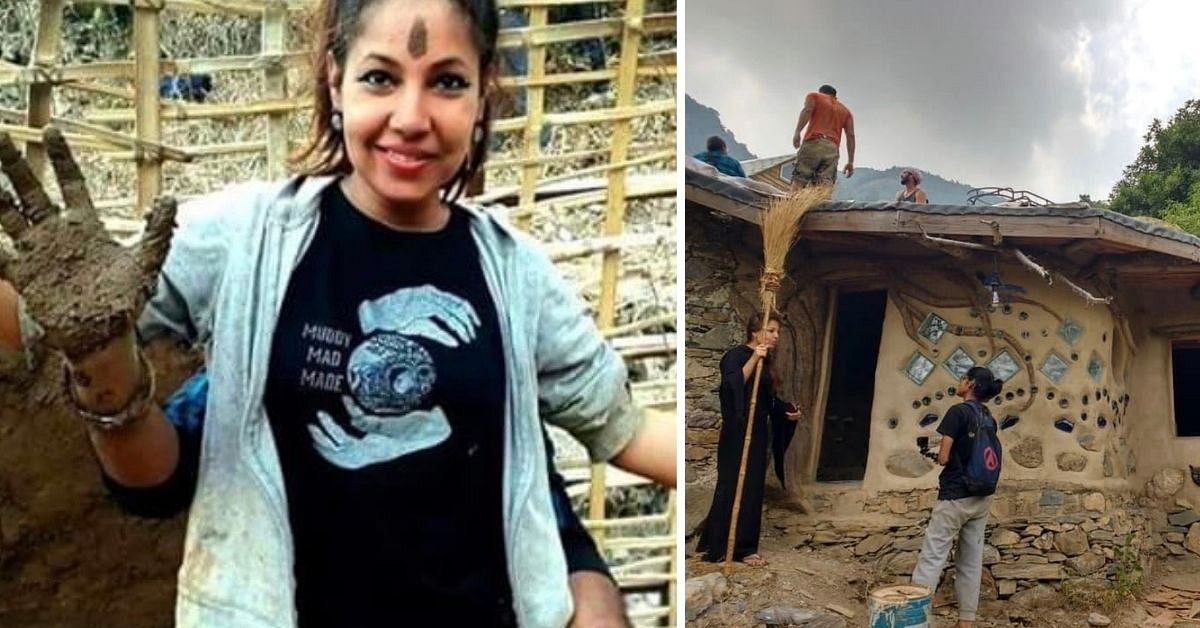‘Mindset is biggest hurdle in leading sustainable life’
Shagun Singh, founder of Geeli Mitti Farms, Nainital, a social enterprise that specialises in sustainable housing and farming...
Q: What made you start this social enterprise?
My desire to live in a house constructed with natural materials laid the foundation of Geeli Mitti. Founded in 2015, it is also a training and research center that teaches sustainable housing. More than 100 students from across the world get enrolled in the research and training centre every year. At Geeli Mitti farm, everyone is happily working towards building rooms, house structures, kitchens and toilets in the most eco-friendly form. I also believe that natural material such as mud has a lot of power which is not acknowledged by the people. All the monuments and the beautiful architectures we see and acknowledge today are made from mud and big stones. They don’t have any cement in them, yet they are strong and have survived many natural calamities while even a small Richter scale earthquake can cause concrete buildings to demolish in seconds
Q: What is so special about mud houses?
These mud houses are not only beneficial for the environment but also for human health and one can build such houses anywhere even in cities and these houses have all the facilities one gets in flats. If you have a natural house you don’t need things like AC, fans and heaters because these houses will give you a suitable atmosphere needed to survive through all the seasons and climatic conditions. Apart from the good living conditions, these structures provide the spiritual energy that is felt while residing in it. It’s a stated fact that cement cannot breathe. You lock a cement house for 10 days and you can’t get inside. The carbon emissions, which are generated to produce cement, are so harmful, whereas, in naturally built mud houses you can leave them as it is and nothing will happen.
Q: What major challenges do you face?
We are being manipulated by rigid mindsets and marketing strategies. How can we trust a material (cement) which is not even 100 years old and doubt our architecture skills and the raw-material which gave us so many amazing monuments? Although mud structures have been there since mankind, people now believe it’s of no good use. What about cement? Cement is a building technique that is about 70 years old and people find it more dependable. The thought that naturally built mud houses do not have long life, shatters the entire existence of centuries-old knowledge. Every haveli, house and fort which is going strong today without maintenance is made of mud. The Geeli Mitti Farms has built 12-14 mud houses in various parts of India. All of these houses are based on sustainable and natural materials. There is no usage of cement and bricks in the construction of these houses. They are made up of natural building materials such as sand, clay and mud. Even the wooden work includes the upcycled or recycled wood, which is already available so that there are no tree cuttings. We have also recycled the bodies of old car and used it for the decor.
Q: Do you help provide livelihood to the poor?
The Geeli Mitti Farms also features several livelihood programmes. One such initiative includes adopting measures to beat plastic pollution. We work to provide a learning experience to several prisoners in Delhi. These prisoners stitch cloth bags in the cells which are then sold by us and the money they earn is deposited into their bank accounts. This initiative not only helps them earn a livelihood but also brings us one step closer to our quest to make the environment plastic-free. We are also working with women from slums for this cloth bags project.
















Leave a comment